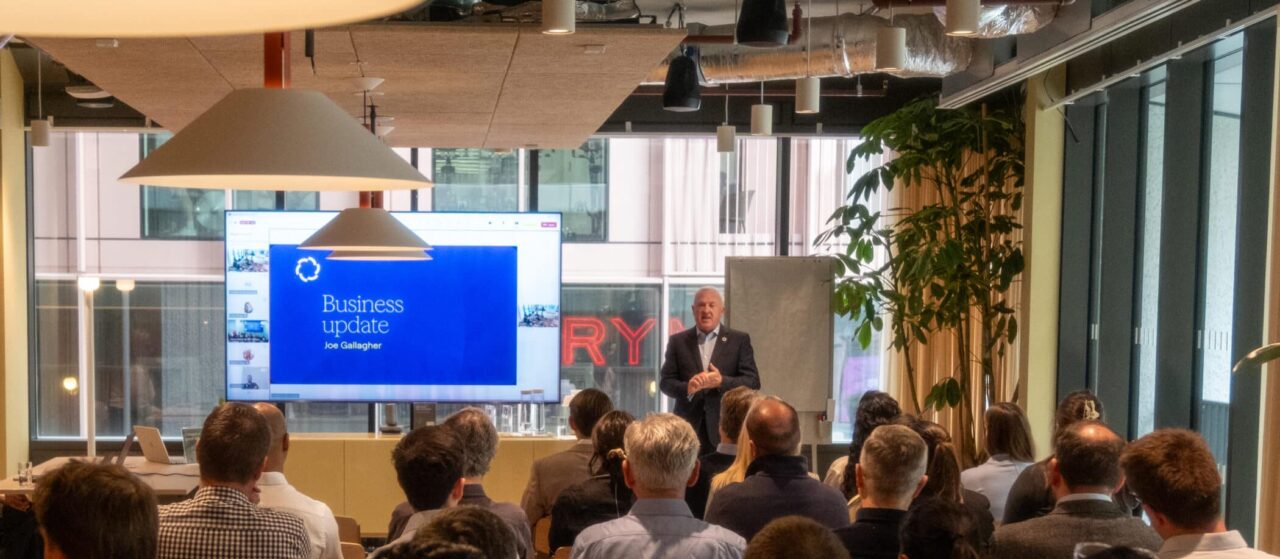As the son of two learned child-psychologists, I have been spoon-fed with the workings of the human mind. Through a process of ‘cognitive dissonance’, we unconsciously make our perception of reality fit our existing beliefs and preconceived ideas. We deliberately narrow our horizons to what we know, often to simplify solutions to the problems and complex situations we face in everyday life. We see what we wish to see.
‘If you’re a hammer, everything looks like a nail’. Many experiments have demonstrated this effect of “wilful blindness” and in her book with that title, Margaret Heffernan warns how modern managers need to constantly fight this urge in order to stay ahead of the curve in fast changing technology sectors.
Sometimes, I feel that the debates we have in telecom regulation are similarly simplified and blind to what goes on in the real world, as the digital ecosystem changes rapidly and fundamentally around us.
We are witnessing tectonic shifts that go way beyond the linear effects of globalisation and product innovation. The new world-wide powerhouses in personal communications, e-commerce, advertising, film and music distribution will alter value chains of entire sectors of the economy. The OTT disruptors successfully found ways to exploit network effects around the world, free from physical networks, asset-light, and free from local regulation and taxes as they operate in cyberspace. You can only look at it in awe and admiration.
But in Europe, we cannot be naïve and think we’ll remain isolated from these winds of change. We’ll need businesses of scale and scope, abandon old sector specific rules, eliminate fragmentation, incentives to invest and to innovate, and true level playing fields between the old and the new.
The new Telecommunications Code as proposed by the EU Commission tries to find the right balance. It will not solve everything, but at least moves in the right direction. The problem is now in the contradicting amendments proposed by the EP and Council, some of which seem to reflect a debate of the 1990s.
Already eighteen years ago, when I joined the cable industry for the first time, the hottest debate of the time was that of regulating wholesale access. At that time, it was indeed the only way to create value for society, by forcing expensive incumbent Telcos to allow innovative resellers on their networks. And it worked to some extent, prices came down and service quality improved. Very few resellers, however, actually climbed the ‘ladder of investment’ to build networks of their own. Some regulators tried to apply the same rules to young emerging builders of cable infrastructure, but the EU Commission rightly did not want take away incentives to invest in those new networks.
Dutch pressure was the most persistent. Twice, cable access regulation was submitted for approval by the EU Commission in article 7 procedures. Twice, the EU blocked it. Finally, the Dutch managed to get a third attempt approved in 2011, only to find it eliminated by the Dutch Appeals court. The Belgians had more luck. They fabricated a market definition for Flemish language television and a remedy that required the resale of television bundled with wholesale broadband access.
It is no coincidence then, that both of these countries see the regulation of networks as the best way to deal with the enormous complexity of the new digital ecosystem. ‘If you’re a hammer, everything looks like a nail’, becomes ‘If you’re a regulator, everything looks like a network that needs to be regulated’.
Instead, ‘sector-specific’ telecom rules should be replaced as soon as possible by generic competition rules that apply to the economy as a whole. The ‘sector’ of telecommunications, no longer exists, it has been absorbed in a worldwide digital ecosystem. We are all cyberspace now.
The world moved on. Customers have become technology agnostic, seamlessly switching between fixed and mobile broadband. For millennials, fixed telephony is a relic of the past, television is what you see on Netflix, and personal communications goes through Whatsapp, Instagram, Snapchat, not through phone connections. In the Gigaworld, the further evolution of advanced applications and customer experiences goes hand in hand with both fixed and mobile network investments.
Regulators all over the world, have to fight their traditional reflexes and Heffernan’s ‘willfull blindness’. In my view, the EU Commission today is actually one of the few regulators in the world to try and keep an open mind to all those developments and it diligently applies general principles of competition law, data protection and taxation to all operators in the new digital ecosystem. In absence of any new directions from other such agencies, the EU is effectively becoming the new world regulator.
Many national regulators and governments in Europe however, still find it very difficult to cast away traditional reflexes. The urge to regulate access on networks is one of those reflexes. And it translates now in amendments to apply symmetric access regulation without proper market analysis, or to create a new definition of ‘joint dominance’ only for telecom network operators, not for any other industry. That is a 1990s solution to the complexity of a 21st century digital ecosystem.
The time that society was going to create value with the reselling of regulated access to networks is long gone. New value creation takes place elsewhere, in customer experience, advanced user interfaces, advanced advertising and data mining, personalisation, and, yes, in further network investments.
We should have the courage to open our eyes and see more than what we wish to see.










